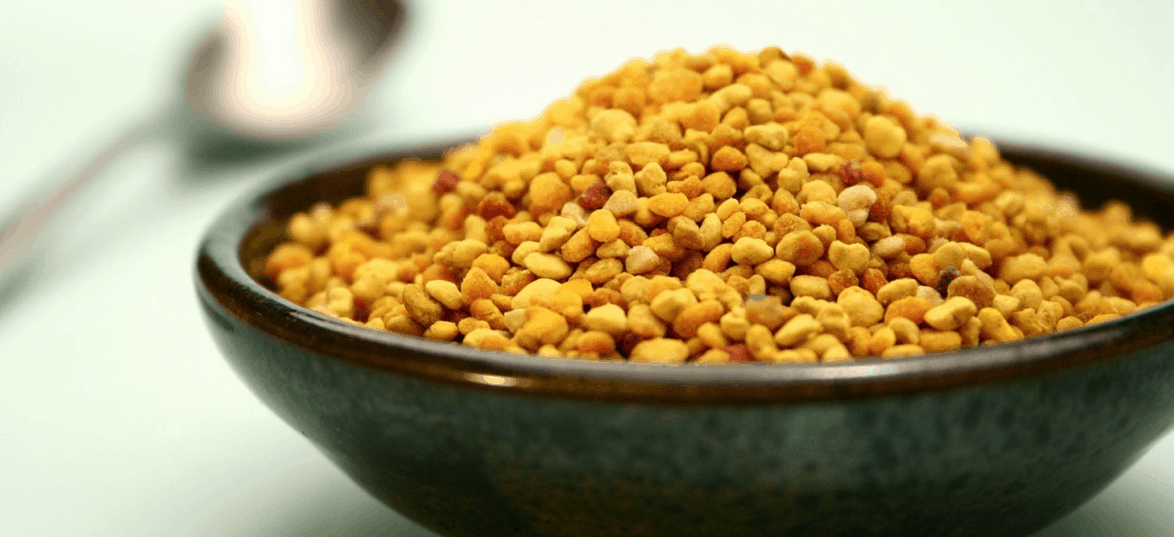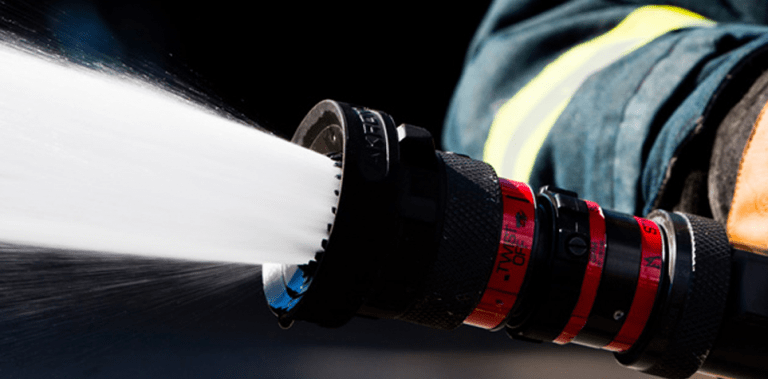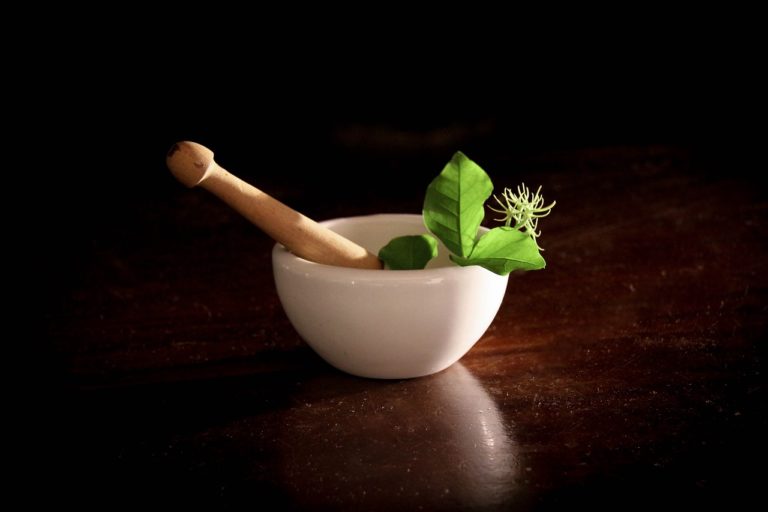Phytotherapy is a natural prostatitis treatment that has been getting a lot of positive attention from both holistic and traditional practitioners over the past few years. Phytotherapy combines two supplements for prostatitis, quercetin and pollen extracts, in specific formulations. Phytotherapy is not just for prostatitis, as men suffering from chronic prostatitis/chronic pelvic pain syndrome (CP/CPPS) and other prostate disorders such as enlarged prostate are also using phytotherapy. That is because pollen and quercetin have been found to work well when combined to help restore prostate health.
Both pollen extracts and quercetin are anti-inflammatories that can be helpful in reducing prostate inflammation.
In addition, quercetin is a bioflavonoid nutrient that you can find in apples, red grapes, red wine, onions, berries, tea and other foods. It has antioxidant properties and plays a role in inhibiting the production and release of substances that cause inflammation in the body. Pollen extracts have a slightly different mechanism of action from quercetin, and that is why the two work well in combination. Pollen fights inflammation and causes the bladder to contract, making it helpful for relieving urinary symptoms associated with prostatitis. One of the more common pollen extracts, called Graminex, contains pollen from timothy, rye, and corn. You may also see it referred to as Cernilton.
Phytotherapy for Prostatitis—Does It Work?
Phytotherapy is a Tier 1 Supplement for prostatitis. That means that phytotherapy has successful clinical studies and research supporting its effectiveness. More and more doctors and men are turning to natural and alternative treatments such as phytotherapy for prostatitis because it works well, is easier on the body, supports the immune system, and does not produce the serious side effects for long-term problems associated with pharmaceutical drugs. The UPOINT system for prostatitis treatment also recommends phytotherapy and quercetin for the organ specific and pelvic floor spasms domains.
There are many studies on the effectiveness of using phytotherapy or its individual ingredients for prostatitis:
- An early study of Cernilton pollen extract involved 90 men who had CPPS. Researchers divided men into two groups: 72 men without complicating factors and 18 men with complicating factors. All participants took Cernilton three times a day for six months. After three and six months of intervention the men underwent testing (such as digital rectal examination, uroflowmetry, and bacterial studies). Among the men without complicating factors, 56 (78%) reported a favorable response to Cernilton: 26 men (36%) had their symptoms eliminated, and 30 (42%) experienced significant improvement (including an increase in urine flow rate). In the group of men with complicating factors, only one patient reported a response. Overall, 97% of patients tolerated Cernilton well.
- Quercetin “provides significant symptomatic improvement” in CP/CPPS patients, according to researchers in a 1999 study. Two-thirds of the patients reported improvement in their quality of life after treatment with quercetin. The authors of the study attributed the patients’ positive results to the supplement’s anti-inflammatory and antioxidant properties.
- One Cleveland Clinic study following the UPOINT model found quercetin to be very effective at treating prostatitis. Researchers treated 100 men. The men had an average of three positive UPOINT domains, the most common being the organ-specific domain (70%). Men who who qualified in the organ-specific UPOINT category took quercetin. Quercetin was associated with a greater decline in the Chronic Prostatitis Symptom Index (CPSI), compared with other prostatitis treatments used in the study.
- A randomized, double-blind, placebo-controlled study had 28 men with Chronic Prostatitis/CPPS take either a placebo or 500 mg quercetin for one month. An additional 17 men took a supplement that contained quercetin, bromelain, cranberry, papain, and saw palmetto. After one month, the men who took quercetin had a drop in their International Prostate Symptoms Score from 21.0 to 13.1, while the placebo group only went from 20.2 to 18.8. The authors compared the three groups to see which ones reported at least a 25% improvement in symptoms: 20% of the placebo group, 67% of the quercetin group, and 82% of the combination supplement that contained quercetin reported at least a 25% improvement in CPPS symptoms.
- That same author of the previous study also conducted a multimodal study that involved quercetin over 10 years later. This study involved 100 men with CP/CPPS. Quercetin was associated with a greater decline in CPPS symptoms than other approaches.
- A Spanish study found phytotherapy useful for CP/CPPS patients in a field of multimodal treatment and also found phytotherapy useful for recurrent urinary tract infections.
- A six-month study followed usuing pollen extract in 60 men with CP/CPPS. The researchers found pollen extracts to be “superior to placebo in providing symptomatic relief in men with chronic nonbacterial prostatitis/chronic pelvic pain syndrome.” After six months, the men who took pollen extract had either no symptoms or had a significant improvement in their symptoms.
- A 12-week randomized, multicenter, double-blind, placebo-controlled study was published in European Urology. They reported that the 70 men who took Cernilton pollen extract had experienced significant improvements in terms of their pain, prostatitis symptoms, and quality of life (without any severe side effects) compared to 60 men who took a placebo.
- The American Urological Association presented a study on Cernilton in 2006. The AUA reported that men who took Cernilton had statistically significant improvements in their quality of life and level of pelvic discomfort.
- Urology published a double-blind study on pollen extracts in January 2006. The study involved 60 men with CPPS. In the study, men who took a pollen extract for six months were either symptom free or had experienced a significant improvement in their symptoms. Patients took either a placebo or a pollen extract preparation with ingredients similar to Cernilton. The authors concluded that that the pollen extract was “superior to placebo in providing symptomatic relief in men with chronic nonbacterial prostatitis/chronic pelvic pain syndrome.”
- Authors of a study published in the World Journal of Urology performed a systematic review of the articles published in PubMed up to 2012 that covered alternative therapies for treating CP/CPPS such as phyotherapy, acupuncture, myofascial physical therapy, diet and lifestyle modifications, and stress management/cognitive behavioral therapy. The authors concluded that CP/CPPS often requires a multimodal approach to treatment and that alternative therapies should be considered as adjuncts in the treatment of refractory CP/CPPS patients.
Because prostatitis symptoms may include urinary symptoms that are similar to others conditions (such as enlarged prostate due to benign prostatic hyperplasia—BPH), it can be helpful to look at how pollen extracts and quercetin can help those symptoms as well. Here are studies that used those supplements for BPH symptoms.
- The British Journal of Urology published a study in which men with BPH took Cernilton pollen extracts every day for six months. They found that 69% of the men experienced an improvement in symptoms. Only 30% of the men who took the placebo had an improvement.
- A review of four different studies including 144 men with BPH was published in Cochrane Database Systemic Review. The reviewed trials used Cernilton pollen extract and each trial lasted 12 to 24 weeks. Compared with use of placebo, the pollen extract resulted in an improvement in urinary symptoms, but it did not affect prostate size.
- A 12-weeks study in Japan evaluated the use of cernilton in 79 BPH patients. Participants in the study ranged in age from 62 to 89 years. Patients took Cernilton three times a day, two tablets of 63 mg. After two weeks, the urine maximum flow rate and average flow rate had increased significantly, while residual urine volume had decreased significantly. The men had improvements in the following factors: urgency or discomfort 76.9% improvement; dysuria, 71.4%; nocturia, 56.8%; incomplete emptying, 66.2%; prolonged voiding, 64.1%; delayed voiding, 62.2%; intermittency, 60.6%; and postvoid dribbling, 42.7%. Overall, 85% of participants experienced benefit: 11% reported “excellent” results, 39%, “good,” 35%, “satisfactory,” and 15%, “poor.” The authors concluded that Cernitin “showed a mild beneficial effect on prostatic volume and urination variables in patients with symptomatic BPH.”
- Scientists reported the effect of quercetin and the drug finasteride (Proscar) on the prostate gland in rats in a study published in the Journal of Endocrinology. The quercetin (given at doses of 50, 100, or 150 mg per kg of body weight) along with the drug finasteride resulted in a 31.8%, 40.0%, and 48.2% reduction, respectively, in prostate weight. The authors concluded that quercetin works with finasteride to reduce prostate weight through a cell cycle-related pathway that may function independent of androgens.
Uses and Side Effects of Phytotherapy for Prostatitis
Patients who use phytotherapy with pollen extracts and quercetin find that most people tolerate them at 500 mg per day, but there are a few precautions for men who have allergies. Do not take bee pollen if you are allergic to pollen. An allergic reaction may include shortness of breath, hives, and throat, tongue, or facial swelling. Talk to you doctor if you are allergic to flowers, grass, or other plants before taking any product that has bee pollen in it.
Quercetin is usually effective at a dose of 500 mg per day. Talk to your doctor before taking more than 1 gram.
Quercetin may cause some minor side effects. The most common side effects include headache and upset stomach.
Quercetin may interact with some medications, so you should tell your doctor that you are taking it, especially if you take blood thinners.
References for Phyotherapy for Prostatitis
Elist J. Effects of pollen extract preparation Prostat/Poltit on lower urinary tract symptoms in patients with chronic nonbacterial prostatitis/chronic pelvic pain syndrome: a randomized, double-blind, placebo-controlled study. Urology- 2006 Jan; 67(1): 60-63
Herati, A.S. Alternative therapies in the management of chronic prostatitis/chronic pelvic pain syndrome World J Urol. Aug;31(4):761-6. Epub 2013 Jun 6.
Ma Z et al. Reduction of rat prostate weight by combined quercetin-finasteride treatment is associated with cell cycle deregulation. J Endocrinol 2004 Jun; 181(3): 493-507
Morán E. Phytotherapy in urology. Current scientific evidence of its application in urolithiasis, chronic pelvic pain, erectile dysfunction and urinary tract infections Actas Urol Esp. 2013 Mar;37(3):174-80. doi: 10.1016/j.acuro.2012.07.004. Epub 2012 Oct 9.
Rugendorff EW et al. Results of treatment with pollen extract (Cernilton N) in chronic prostatitis and prostatodynia. Br J Urol 1993 Apr; 71(4): 433-38.
Shoskes DA et al. Quercetin in men with category III chronic prostatitis: a preliminary prospective, double-blind, placebo-controlled trial. Urology 1999; 54(6):960-63.
Shoskes DA et al. Phenotypically directed multimodal therapy for chronic prostatitis/chronic pelvic pain syndrome: a prospective study using UPOINT. Urology 2010 Jun; 75(6): 1249-53 –
Wilt T et al. Cernilton for benign prostatic hyperplasia. Cochrane Database Syst Rev 2000; (2):CD001042 .
Wagenlehner FM et al. A pollen extract (Cernilton) in patients with inflammatory chronic prostatitis-chronic pelvic pain syndrome: a multicentre, randomized, prospective, double-blind, placebo-controlled phase 3 study. Eur Urol 2009 Sep; 56(3): 544-51







